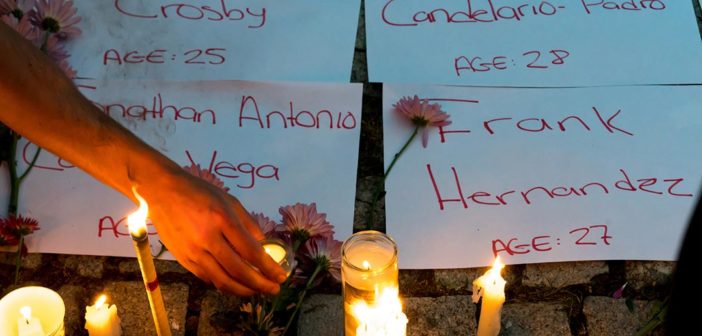The June 12 mass shooting at a popular gay nightclub in Orlando has shaken communities across the country.
Days later, many people are still struggling to cope with news of the tragedy—even those who were not directly affected. That struggle is not uncommon, said two Fordham experts on stress and trauma; personal or geographic distance from the tragedy will not necessarily spare people from intense grief or even trauma.
“Acts like this pull the rug out from underneath us,” said David Koch, PhD, clinical associate professor at the Graduate School of Social Service. “When something like this happens—losing 50 people at once in a violent act—you don’t have the traditional tools available, so how do you manage it?”
Few of us know what to do or how to act following such atrocities, because, until recent years, recurrent mass gun violence has not been part of our realities. In the aftermath of Newtown, Aurora, Orlando, and others, Koch said, we’ve come to realize we have no idea how to make sense of the fear, anxiety, anger, and sadness that these shootings have triggered.
Moreover, the near-constant stream of news coverage on media outlets and social platforms keeps us immersed in the unfolding tragedy. The exposure may trigger in some people a secondary grief reaction, said Mary Beth Werdel, PhD, an assistant professor of pastoral counseling at the Graduate School of Religion and Religious Education.
If that feeling of grief is accompanied by more intense physical and psychological symptoms—for instance, intrusive thoughts or memories about the event, hypervigilance, feelings of anger or sadness, or sleep or appetite disturbances—then one may also be experiencing a trauma reaction.
Read the rest of the story in Inside Fordham.



